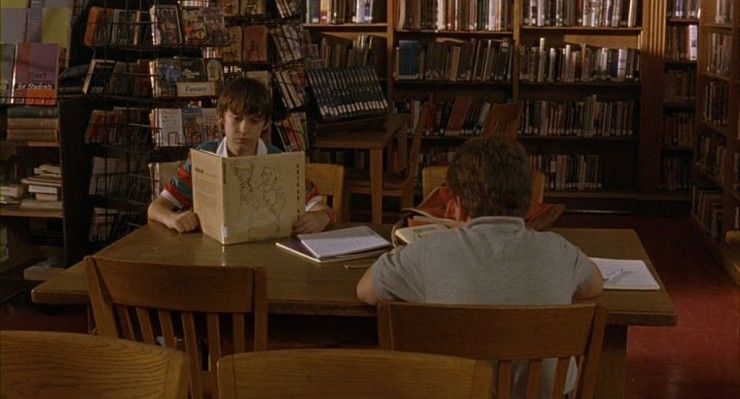
Sometimes you have so many projects going on you need a way to keep track of all of them.
During the strike, my goal has been to get organized. Just assess what stage every project is in and prepare for whatever I need to do next. It’s helping me clear my head and think of the next thing I’ve been working on.
Staying organized as a filmmaker is a crucial aspect of the filmmaking process, as it can make or break the success of a project. With so many moving parts and variables to consider, it can be easy to lose track of important details and end up with a disorganized mess.
And that mess can get you into trouble with deadlines and on set.
In this comprehensive guide, we’ll explore various aspects of the organization for filmmakers, touching on everything from pre-production to post-production and providing valuable tips to help you streamline your workflow and achieve success in your filmmaking endeavors.
Let’s dive in.
Table of Contents
Pre-Production Organization
Staying organized in pre-production is crucial for the success of any project, whether it’s a film, a play, a product launch, or any other creative endeavor.
Develop a System for Cataloging Projects
One of the core elements of staying organized as a filmmaker is the proper cataloging of your projects. This involves creating a system where you can easily access and search for any files, raw footage, or relevant documents related to a specific project.
A well-organized catalog will allow you to navigate through years of work efficiently and can make a significant difference in your overall productivity.
Use Detailed Project Folders and Naming Conventions
This is such a funny thing to recommend, but I can tell you my life got markedly better when I developed a filing system for all my drafts and projects. I always send out the right ones and I always know where they are saved and backed up.
A major component of cataloging is creating a folder structure that is easy to understand and navigate. This includes using a consistent naming convention for your files and organizing them into relevant folders. For example, you might create folders for raw footage, final edits, sound files, and scripts.
By keeping your project files organized and properly named, you can save valuable time and avoid confusion when trying to locate specific assets.
This saves time and sanity, trust me.
Create a Project Timeline and Schedule
Before diving into production, it’s crucial to develop a clear timeline and schedule for your project. This should include milestones, deadlines, and a detailed breakdown of tasks and responsibilities for each team member.
By having a well-defined schedule in place, you can ensure that everyone is on the same page and working towards a common goal.
Don’t commit to things you don’t have the time for, and don’t chase ideas that maybe weigh you down. Step back, step away, work on other things, and schedule the rest for later.
This will also help stave off writer’s block.

Production Organization
When you are on the job, you need to be organized. It’s a professional expectation.
Director’s Responsibilities
A director’s organization is essential for a smooth production process. They should have a thorough understanding of the script, shot list, overheads, storyboards, and script breakdowns.
These materials should be readily available for reference on set, ensuring that any confusion can be quickly resolved and the director can effectively communicate their vision to the cast and crew.
Crew Organization and Equipment
Proper organization and maintenance of equipment are vital for a smooth production process. This involves keeping gear organized, easily accessible, and separated by department (e.g., lighting, camera, art). By ensuring that equipment is properly stored and maintained, you can minimize delays and ensure that your production runs as efficiently as possible.
Assign an Assistant Director (A.D.)
Having an A.D. on set can significantly improve organization and overall production efficiency. An A.D. is responsible for managing the set and keeping everything on schedule, which can be invaluable when it comes to staying on track and meeting deadlines.
If you’re working on a smaller project without the budget for a dedicated A.D., consider assigning someone on your team to take on this role.

Post-Production Organization
Whether you’re a UPM or editor or post-house manager, organization is crucial to your job and to make things go smoothly on and off set.
Maintain a Clear Editing Workflow
In post-production, organization is just as important as it is during pre-production and production. Develop a clear workflow for editing, including a system for organizing and naming your files and folders. This will help you avoid confusion and ensure that your final edit comes together smoothly and efficiently.
Backup and Archive Your Files
Backing up and archiving your files is essential for protecting your work and maintaining an organized post-production process. Make sure you have multiple copies of your project files, stored in different locations or on different devices. Additionally, consider using cloud storage services for an extra layer of protection and easy access to your files from anywhere.
I have lost so many files, don’t be me. Back them up.

General Tips for Staying Organized as a Filmmaker
Use Project Management Tools
Project management tools can be incredibly helpful in keeping your filmmaking projects organized and on track. Tools such as Trello, Asana, or Airtable can help you manage your tasks, assign responsibilities, and keep track of deadlines, ensuring that your entire team stays on the same page.
Communicate Regularly with Your Team
Open and consistent communication is essential for maintaining organization throughout the filmmaking process. Regular check-ins and updates with your team can help ensure that everyone is on track and working towards the same goals.
Utilize tools like Slack or Google Hangouts to facilitate communication and keep your team connected.
Continuously Improve Your Organization Skills
Staying organized as a filmmaker is an ongoing process that requires continuous improvement and adaptation. Regularly assess your organization strategies and look for opportunities to streamline your workflow and enhance productivity.
By staying proactive and committed to organization, you can set yourself up for success in your filmmaking career.

Summing Up How Do You Stay Organized As a Filmmaker?
Organization is a critical aspect of filmmaking, with the potential to significantly impact the success of your projects. By implementing these tips and strategies, you can improve your organizational skills and enjoy a more efficient, productive filmmaking process.
Remember, staying organized is an ongoing journey, so continually assess your methods and look for ways to refine and enhance your workflow.














